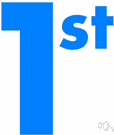Your Guide to Careers in Sports Medicine and Sports Broadcasting
Introduction
Sports medicine physicians and sports broadcasters play vital yet distinct roles in the world of athletics. Both fields offer exciting opportunities, but each requires unique educational paths, skill sets, and professional training. This guide provides comprehensive, actionable steps to help you start your journey toward becoming either a sports medicine physician or a sports broadcaster. You’ll find a breakdown of required education, licensing, practical experience, and alternative pathways, along with real-world examples and guidance on accessing relevant programs or opportunities.
Becoming a Sports Medicine Physician
Understanding the Role
Sports medicine physicians specialize in treating athletes and individuals who are physically active. They diagnose, treat, and help prevent injuries related to sports and exercise. Their expertise covers areas such as traumatic injury care, exercise physiology, nutrition, cardiology, emergency treatment, and rehabilitation techniques. [1]

Source: bioexplorer.net
Step-by-Step Pathway
1. Earn a Bachelor’s Degree (4 Years)
Begin with a bachelor’s degree, ideally in a scientific field such as biology, chemistry, or pre-med. Coursework should cover general and organic chemistry, biology, physics, genetics, physiology, and advanced science topics, preparing you for medical school prerequisites. [2]
2. Take the Medical College Admission Test (MCAT)
The MCAT is a standardized exam assessing your knowledge of science, reasoning, communication, and writing. A strong MCAT score is required for medical school admission. [1]
3. Complete Medical School (MD or DO, 4 Years)
Medical school provides broad training in medicine and clinical practice. You will earn either an MD (Doctor of Medicine) or DO (Doctor of Osteopathic Medicine) degree. Both paths are accepted in sports medicine. [3]
4. Finish a Residency Program (3-4 Years)
Residency is hands-on, supervised training in specialties such as family medicine, emergency medicine, internal medicine, pediatrics, physical rehabilitation, or orthopedic surgery. This phase builds a solid foundation in patient care. [3]

Source: bioexplorer.net
5. Complete a Sports Medicine Fellowship (1-2 Years)
After residency, enter a specialized fellowship in sports medicine. Here, you’ll focus on sports-related injuries, work as a team physician, and gain experience with athletes at various levels. The fellowship typically lasts one to two years. [3]
6. Obtain Medical Licensure and Certification
You must pass the United States Medical Licensing Examination (USMLE) or Comprehensive Osteopathic Medical Licensing Examination (COMLEX) to practice medicine. Afterward, pursue the Certificate of Added Qualification (CAQ) in Sports Medicine. [1]
7. Maintain Certification and Continuing Education
Ongoing learning through supplemental coursework and professional development is required to stay current and maintain certification. This ensures you remain up-to-date with the latest advances in sports medicine.
Alternative and Related Pathways
Some sports medicine professionals begin in related fields such as physical therapy, athletic training, or exercise physiology and later transition to medical school. This can broaden your perspective and strengthen your application.
Real-World Example
Many sports medicine physicians work as team doctors for high schools, colleges, or professional organizations. For instance, a physician may start by volunteering with local sports clubs during their fellowship, gaining practical experience and building professional connections.
Potential Challenges and Solutions
The extensive training period (typically 13+ years) and competitive nature of medical school admissions can be challenging. To improve your chances, seek internships, research opportunities, and shadowing experiences in sports medicine settings. Consider joining professional organizations such as the American Medical Society for Sports Medicine to network and access resources.
Implementation Steps
- Research accredited pre-medical programs and ensure you meet prerequisites for medical school.
- Prepare for and register for the MCAT through the Association of American Medical Colleges (AAMC).
- Apply to accredited MD or DO programs via the American Medical College Application Service (AMCAS) or the American Association of Colleges of Osteopathic Medicine Application Service (AACOMAS).
- Seek out residency programs with strong sports medicine affiliations.
- Identify and apply for sports medicine fellowships recognized by the Accreditation Council for Graduate Medical Education (ACGME).
- Prepare for licensing exams and research state-specific licensure requirements by visiting your state’s medical board website.
Becoming a Sports Broadcaster
Understanding the Role
Sports broadcasters provide live commentary, analysis, and reporting for sporting events. They may work in television, radio, or digital media, covering everything from play-by-play announcements to behind-the-scenes interviews. The field values strong communication skills, sports knowledge, and on-air presence.
Step-by-Step Pathway
1. Earn a Bachelor’s Degree
While not strictly required, most employers prefer candidates with a bachelor’s in journalism, communications, broadcasting, or a related field. Coursework often includes media writing, public speaking, broadcast production, and sports journalism.
2. Develop Relevant Skills
Strong speaking skills, sports knowledge, storytelling, and technical proficiency with audio/video equipment are essential. Participate in campus radio or TV stations, podcasts, or streaming channels to gain experience.
3. Gain Practical Experience
Internships and volunteer roles with local radio/TV stations, sports teams, or digital media outlets are critical for building a portfolio and industry connections. On-air experience and demo reels are often required for entry-level positions.
4. Build a Portfolio and Network
Create a professional demo reel featuring your best on-air segments. Attend industry events, join professional organizations (such as the National Association of Broadcasters), and connect with mentors to expand your network.
5. Apply for Entry-Level Positions
Start with roles such as production assistant, sports reporter, or commentator at smaller stations. Be prepared to relocate or work nontraditional hours. Persistence and flexibility are key early in your career.
6. Advance in the Field
With experience, you can move into higher-profile positions, such as lead commentator, anchor, or analyst for larger media outlets. Continual skill development-especially in digital media and sports analytics-can open new opportunities.
Alternative and Related Pathways
Some broadcasters transition from careers as athletes, coaches, or sports writers. Others may specialize in digital content creation, podcasting, or social media, which can serve as alternative entry points into the field.
Real-World Example
Many successful broadcasters begin by calling games for local high school or college teams, or by creating their own sports podcasts and YouTube channels. These experiences help build a following and demonstrate capability to employers.
Potential Challenges and Solutions
Competition is intense, and early-career roles may offer modest pay. To stand out, focus on building a diverse skill set-including video editing, social media management, and sports analytics. Be proactive in seeking feedback and continually refining your on-air presence.
Implementation Steps
- Research accredited journalism or broadcasting programs through organizations such as the Accrediting Council on Education in Journalism and Mass Communications (ACEJMC).
- Participate in college media, sports reporting, or live event coverage to build experience.
- Apply for internships with established media companies or sports organizations. Look for opportunities on their official websites or through campus career services.
- Develop a digital presence by creating sports content on platforms like YouTube or podcast directories.
- Join professional associations for broadcasters to access networking events and job boards.
Accessing Training, Certification, and Opportunities
For sports medicine, visit the official websites of the Association of American Medical Colleges (AAMC) and the Accreditation Council for Graduate Medical Education (ACGME) to search for accredited programs. For broadcasting, search for journalism and media schools certified by the ACEJMC and review job boards of major media organizations (such as ESPN, CBS Sports, or NBC Sports) for current openings. Always verify program accreditation and employer legitimacy before applying.
Summary and Next Steps
Both sports medicine and sports broadcasting offer fulfilling careers for those passionate about athletics. Whether you pursue the rigorous path of medical training or the dynamic world of media, dedication, education, and practical experience are critical. Reach out to academic advisors, professional organizations, and mentors to guide your journey. Stay proactive, flexible, and committed to continuous learning to maximize your potential in these competitive fields.



